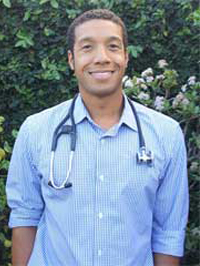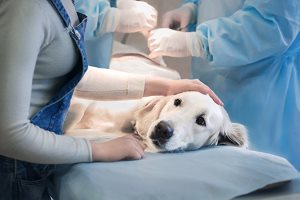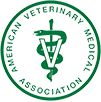Top reasons a pet may need oral surgery in Lakewood
Posted by Dr. Jose Arambulo
Tooth extraction is the most common type of pet oral surgery performed at Bloomfield Animal Hospital in Lakewood. It is considered a “last resort” procedure, only recommended when the problem is too advanced for therapeutic or restorative treatment. We are dedicated to the health and wellbeing of your pets. After examining your companion, we will advise you of options and make a recommendation. If the problem is severe tooth damage or advanced oral disease, that recommendation will likely be extraction.
Fractured or broken teeth
There is a common misconception that tooth damage in animals is not a serious concern. Many pet owners think treatment is unnecessary unless they observe signs of complications. In reality, dogs and cats’ teeth are very similar to humans, and they suffer similar consequences if damage goes untreated.Like people, dogs and cats have soft tissue (pulp) and ultra-sensitive nerves in their teeth. When pulp is exposed, the animal suffers severe pain, although he or she can’t tell you about it. Very gradually, the nerve in the tooth will die, reducing pain to a dull ache in that area of the mouth. As the pulp breaks down infection sets in, traveling to the tooth root. The resulting abscesses may be extremely painful, and they can have a detrimental effect on the pet’s overall health.
If you take the animal to a veterinarian within two days of a tooth fracture occurring, pulp therapy might be effective. According to UC Davis School of Veterinary Medicine, the procedure has an 80 percent success rate when performed within the recommended time frame. Unfortunately, you probably won’t know about the fracture right away. Because a pet’s teeth aren’t visible, dental problems often go unnoticed until they are discovered during a veterinary exam, or until the animal displays noticeable symptoms. Once infection sets in, the tooth will probably need to be extracted.
Call Us Today
Or
Book an Appointment
Oral disease
Periodontal (gum) disease and cavities are not just human afflictions. Dogs and cats, just like us, accumulate plaque and tartar, which is a host to harmful bacteria. However, unlike us, they can’t brush and floss, nor can they tell anyone about a toothache.Prevention or early treatment of oral disease is as simple as keeping teeth clean. According to the American Veterinary Dental College, daily brushing is the gold standard. Of course, that may be easier said than done, depending on the animal’s temperament. There are also a variety of treats and chew toys designed to clean teeth or promote gum health. Because every animal is different, both behaviorally and medically, it is best to get advice from your veterinarian. When you bring your fur baby to our office for dental care, we will happily answer your questions and help you devise a safe and effective at-home routine.
Five things you should know about pet oral surgery
 Sadly, some pet owners delay or decline treatment, thinking that they are saving the animal from a traumatic experience. In reality, the opposite is true.
Sadly, some pet owners delay or decline treatment, thinking that they are saving the animal from a traumatic experience. In reality, the opposite is true.- Untreated dental problems can cause an animal untold amounts of pain on a daily basis, and infections take a toll on overall health.
- Oral surgery is performed under anesthesia, so the animal feels no pain during treatment.
- Recovery is typically fast and trouble-free.
- Most animals can eat normally, even if they’ve had all teeth removed.
- Bloomfield Animal Hospital is accredited by the American Animal Hospital Association. Although surgical accreditation is not legally required for veterinary hospitals, we are committed to the highest standards of safety and sanitation, and therefore voluntarily participate in the program and adhere to the latest protocols.
Bloomfield Animal Hospital is a trusted name in pets’ preventive, medical, surgical, and emergency care in Lakewood, CA. With a 30-year history as a family-owned pet clinic, it provides modern services in a warm, friendly environment. It’s one of the few veterinary hospitals to be AAHA-accredited.
 Dr. Jose Arambulo, owner and chief veterinarian, is experienced in treating eye, ear, and skin disorders and is especially interested in internal medicine, dentistry, and soft tissue surgery. He earned his BS in Medical Technology from the University of Santo Tomas and his Doctor of Veterinary Medicine from the University of the Philippines. He completed clinical evaluation for veterinary medicine at Purdue University in Indiana and was a veterinarian at Banfield and California before acquiring Bloomfield Animal Hospital.
Dr. Jose Arambulo, owner and chief veterinarian, is experienced in treating eye, ear, and skin disorders and is especially interested in internal medicine, dentistry, and soft tissue surgery. He earned his BS in Medical Technology from the University of Santo Tomas and his Doctor of Veterinary Medicine from the University of the Philippines. He completed clinical evaluation for veterinary medicine at Purdue University in Indiana and was a veterinarian at Banfield and California before acquiring Bloomfield Animal Hospital.
Dr. Arambulo is an active member of the American Veterinary Medical Association, Veterinary Information Network, Southern California Veterinary Medical Association, Southern California Filipino Veterinary Medical Association, and the Lakewood Chamber of Commerce.
 Our Traveling Surgeon, Dr. Zachery Smith, is a Diplomate of the American College of Veterinary Surgeons. He specializes in complex orthopedic and soft tissue surgery. While training, he worked with some of the best orthopedic surgeons in the country. He has lectured both locally and internationally. Dr. Smith plays a leading role at Veterinary Orthopedics of California, which is dedicated to providing high-level surgical services to pets.
Our Traveling Surgeon, Dr. Zachery Smith, is a Diplomate of the American College of Veterinary Surgeons. He specializes in complex orthopedic and soft tissue surgery. While training, he worked with some of the best orthopedic surgeons in the country. He has lectured both locally and internationally. Dr. Smith plays a leading role at Veterinary Orthopedics of California, which is dedicated to providing high-level surgical services to pets.
 Our visiting physician, Dr. Fred Brewer, is a veterinary cardiologist board-certified by the American College of Veterinary Internal Medicine. He completed his Bachelor of Science in Psychobiology at UCLA and earned his veterinary degree from Cornell University in 2009. Later, he completed a one-year general rotating internship at the California Animal Hospital Veterinary Specialty Group in West Los Angeles and a three-year cardiology residency at Cornell University.
Our visiting physician, Dr. Fred Brewer, is a veterinary cardiologist board-certified by the American College of Veterinary Internal Medicine. He completed his Bachelor of Science in Psychobiology at UCLA and earned his veterinary degree from Cornell University in 2009. Later, he completed a one-year general rotating internship at the California Animal Hospital Veterinary Specialty Group in West Los Angeles and a three-year cardiology residency at Cornell University.

Dr. Arambulo is an active member of the American Veterinary Medical Association, Veterinary Information Network, Southern California Veterinary Medical Association, Southern California Filipino Veterinary Medical Association, and the Lakewood Chamber of Commerce.




















